
Swarm Intelligence
Scope & Guideline
Innovating Through the Lens of Swarm Behavior
Introduction
Aims and Scopes
- Collective Decision-Making:
Research on how groups of agents, whether biological or artificial, make decisions collectively, often under uncertainty or dynamic environments. - Optimization Algorithms:
Development and analysis of swarm-based optimization techniques, such as particle swarm optimization and ant colony optimization, to solve complex problems in various fields. - Robotics and Autonomous Systems:
Application of swarm intelligence principles to the design and control of robotic systems, including multi-robot coordination and autonomous drone operations. - Emergent Behavior and Communication:
Investigation of how simple local interactions among agents can lead to complex global behaviors, including the study of communication strategies in swarms. - Cross-Disciplinary Approaches:
Integration of knowledge from biology, computer science, and engineering to advance the understanding and implementation of swarm intelligence.
Trending and Emerging
- Adaptive and Resilient Swarm Behaviors:
There is an increasing interest in developing swarms that can adapt to changing environments and maintain resilience against disturbances, as evidenced by research on online evolution and behavior fusion. - Decentralized Control and Coordination:
A growing trend towards decentralized approaches in managing autonomous systems, particularly in traffic management and multi-agent pathfinding, showcases the need for efficient and robust coordination among agents. - Integration of Machine Learning:
The incorporation of machine learning techniques into swarm intelligence research is on the rise, facilitating enhanced decision-making capabilities and optimization strategies in dynamic scenarios. - Real-World Applications:
Applied research focusing on practical applications of swarm intelligence, such as wildfire detection and drone flocking optimization, is gaining momentum, highlighting its relevance to contemporary challenges. - Collective Learning and Social Dynamics:
Emerging themes in collective learning and social interactions among agents indicate a deeper investigation into how swarms can learn from their environment and each other, enhancing their collective intelligence.
Declining or Waning
- Biological Inspirations:
Research focusing on mimicking biological systems, such as ant colonies or bee behavior, seems to be less frequent, possibly due to a shift towards more abstract models or hybrid approaches combining biological and computational techniques. - Static Environment Models:
Studies that examine swarm behavior in static environments are becoming less common, as there is a growing emphasis on dynamic and unpredictable conditions where swarms operate. - Basic Algorithmic Approaches:
The exploration of foundational swarm algorithms without significant enhancements or adaptations appears to be waning, as researchers increasingly seek innovative methods that integrate machine learning and adaptive strategies.
Similar Journals
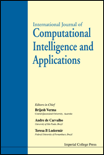
International Journal of Computational Intelligence and Applications
Unveiling the Future of Intelligent Computing SolutionsThe International Journal of Computational Intelligence and Applications, published by WORLD SCIENTIFIC PUBL CO PTE LTD, is a prominent journal dedicated to advancing the field of computational intelligence and its applications, with a keen focus on innovative methodologies and theoretical frameworks. With an impact factor reflective of its growing influence, the journal is classified in Q3 for Computer Science Applications and holds Q4 standings in both Software and Theoretical Computer Science as of 2023, showcasing its critical niche within these disciplines. Established in 2008 and converging through 2024, this journal serves as a vital resource for researchers, professionals, and students in Singapore and beyond, promoting scholarly communication and collaboration. Although it is a non-open access journal, it still provides a wealth of information that is readily accessible through institutional subscriptions and library resources. Researchers contributing to the journal benefit from its wide reach and dedicated readership, making it a substantial platform to disseminate groundbreaking research and insights.
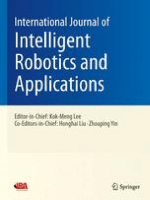
International Journal of Intelligent Robotics and Applications
Transforming Ideas into Intelligent RoboticsInternational Journal of Intelligent Robotics and Applications, published by SPRINGER SINGAPORE PTE LTD, is a pivotal platform dedicated to advancing the field of robotics and artificial intelligence. With an ISSN of 2366-5971 and an E-ISSN of 2366-598X, this journal has established its presence since its inception in 2017, showcasing innovative research and applications up until 2024. The journal aims to foster interdisciplinary collaboration by publishing high-quality articles that cover a broad range of topics from foundational AI concepts to cutting-edge robotics technologies. It holds respectable rankings, positioned in the Q3 category of Artificial Intelligence and Q2 category of Computer Science Applications in the 2023 metrics, and is indexed in Scopus with notable rankings in both computer science disciplines. Although it follows a subscription model, the journal remains committed to facilitating access to groundbreaking research for its audience of researchers, professionals, and students, contributing to the ever-evolving landscape of intelligent robotics.

Natural Computing
Innovating Through Nature's Computational WisdomNatural Computing is a leading peer-reviewed journal published by Springer, focusing on the interdisciplinary study of natural computation methods and their applications across various domains. With an ISSN of 1567-7818 and an E-ISSN of 1572-9796, this journal has established itself as vital in the field of Computer Science Applications, as reflected in its esteemed Q2 quartile ranking and a Scopus rank of #358 among 817 journals, placing it in the 56th percentile. Based in the Netherlands, Natural Computing covers a diverse range of topics, including computational models inspired by natural systems, evolutionary algorithms, and swarm intelligence. Seeking to bridge the gap between theoretical research and practical applications, this journal serves researchers, professionals, and students by providing insights and advancements in the field. With a commitment to fostering innovation, Natural Computing aims to push the boundaries of understanding in computational methods inspired by nature, making it an essential resource for those looking to contribute to and stay updated within this dynamic area.

International Journal of Intelligent Computing and Cybernetics
Pioneering Interdisciplinary Insights in Computing and CyberneticsThe International Journal of Intelligent Computing and Cybernetics, published by EMERALD GROUP PUBLISHING LTD, serves as a pivotal platform for advancing the field of intelligent computing and cybernetics since its inception in 2008. With a strong focus on innovative research and interdisciplinary collaboration, this journal is positioned in the prestigious Q2 category of Computer Science, ranking at an impressive 42nd out of 232 in Scopus, reflecting an 82nd percentile performance. The journal provides a venue for scholars and practitioners to disseminate their findings on cutting-edge technologies and methodologies that bridge the realms of computing, artificial intelligence, and cybersecurity. Although currently not an open-access journal, it widely circulates valuable insights essential for driving forward academic discourse and practical applications in the rapidly evolving digital landscape. Researchers, professionals, and students are encouraged to engage with this journal to stay at the forefront of advancements in intelligent systems and cybernetic solutions.
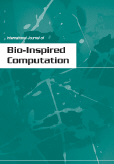
International Journal of Bio-Inspired Computation
Fostering Collaboration in Bio-Inspired Computational ResearchInternational Journal of Bio-Inspired Computation, published by INDERSCIENCE ENTERPRISES LTD, is a leading platform dedicated to advancing research in the fields of bio-inspired computing and its applications. With a robust ISSN of 1758-0366 and E-ISSN of 1758-0374, this journal contributes significantly to the discourse in Computer Science, particularly emphasizing theoretical and practical frameworks that mirror natural processes. Situated in Switzerland, this peer-reviewed journal operates under a rigorous editorial process, ensuring high-quality publications that attract considerable attention, as evidenced by its placement in the Q2 category for 2023 in General Computer Science and Q3 in Theoretical Computer Science. With Scopus rankings reflecting its growing influence—ranked #62 out of 232 in General Computer Science and #36 out of 130 in Theoretical Computer Science—this journal invites researchers, professionals, and students to explore innovative methodologies and development in bio-inspired technologies. Although it currently does not adopt an open-access model, the journal remains committed to disseminating vital research that fuels advancements in computational intelligence, fostering collaboration and knowledge exchange in the ever-evolving landscape of computing.

Evolving Systems
Pioneering Knowledge in Control and OptimizationEvolving Systems, an esteemed journal published by Springer Heidelberg, focuses on advancing the interdisciplinary field of evolving systems, encompassing areas such as computer science applications, control and optimization, control and systems engineering, and modeling and simulation. Since its inception in 2010, the journal has made significant contributions to the academic community, currently holding a commendable Q2 ranking across multiple categories for the year 2023. With an impactful focus on the dynamic behaviors of systems and their adaptive methodologies, Evolving Systems serves as a crucial platform for researchers, professionals, and students aiming to explore and expand the boundaries of system evolution. Despite being a subscription-based journal, it remains committed to fostering high-quality research dissemination and encourages submissions that push the envelope of knowledge in this rapidly developing field. The journal employs a rigorous peer-review process, ensuring the publication of cutting-edge research that meets the highest scholarly standards.
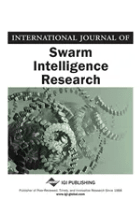
International Journal of Swarm Intelligence Research
Advancing Knowledge in Artificial Intelligence DynamicsInternational Journal of Swarm Intelligence Research, published by IGI Global, stands at the forefront of research in the dynamic field of artificial intelligence, focusing specifically on swarm intelligence and its applications. With an ISSN of 1947-9263 and an E-ISSN of 1947-9271, this journal has carved a niche within academia since its inception, boasting a commendable Q3 rank in the categories of Artificial Intelligence, Computational Theory and Mathematics, and Computer Science Applications as of 2023. The journal spans vital research from the years 2017 to 2024, fostering an environment that welcomes innovative studies that apply natural systems principles to computational methodologies. Although not classified as Open Access, the journal remains accessible to a broad audience, providing vital insights and fostering discussion among researchers, professionals, and students delving into cutting-edge swarm intelligence topics. As such, this journal is an essential resource for those aiming to advance their understanding and application of these transformative technologies.
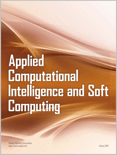
Applied Computational Intelligence and Soft Computing
Elevating Engineering with Computational InsightsApplied Computational Intelligence and Soft Computing, published by HINDAWI LTD, is a premier open access journal that has been disseminating critical research since 2009, focusing on the intersection of artificial intelligence and soft computing. With an impressive array of quartile rankings in 2023, including Q2 in Civil and Structural Engineering and Computational Mechanics, this journal has established itself as a significant contributor to the fields of computer science and engineering. Based in Egypt, it plays a vital role in advancing knowledge by providing researchers, professionals, and students with easy access to high-quality studies. The journal’s rigorous peer-review process ensures that only the most impactful research is highlighted, making it an essential resource for those looking to stay abreast of the latest innovations and methodological advancements in applied computational intelligence. Its Scopus rankings further affirm its influence and reputation within the academic community, exemplifying its commitment to facilitating collaboration and fostering intellectual discourse in various scientific domains.

INTERNATIONAL JOURNAL OF APPLIED ELECTROMAGNETICS AND MECHANICS
Bridging Knowledge in Mechanical and Electrical EngineeringINTERNATIONAL JOURNAL OF APPLIED ELECTROMAGNETICS AND MECHANICS (ISSN: 1383-5416, E-ISSN: 1875-8800) is a prominent peer-reviewed journal published by IOS PRESS, based in the Netherlands. Since its inception in 1996, the journal has established itself as a vital resource for researchers, professionals, and students in the interdisciplinary fields of applied electromagnetics and mechanics, covering a broad spectrum of topics including mechanical engineering, electrical and electronic engineering, as well as condensed matter physics. Although it currently operates under a subscription model, its accessibility and relevance are underscored by its rankings in Scopus across several categories: notably, it ranks in the 34th percentile in Mechanical Engineering and 31st in Electrical and Electronic Engineering. With convergence anticipated until 2024, the journal aims to foster innovative research, promote interdisciplinary collaboration, and provide a platform for the latest advancements in electromagnetics and mechanics, thereby contributing significantly to the academic community and industry practices.
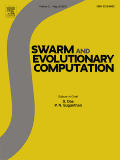
Swarm and Evolutionary Computation
Transforming Complex Challenges into Opportunities.Swarm and Evolutionary Computation is an esteemed academic journal published by Elsevier, dedicated to the exploration of innovative algorithms and methodologies derived from principles of swarm intelligence and evolutionary computation. With its ISSN 2210-6502 and E-ISSN 2210-6510, this journal has earned a prominent position in the field, evidenced by its Q1 category rankings in both Computer Science and Mathematics for 2023, reflecting its high impact and relevance. The journal's Scopus rankings further underscore its significance, placing it in the top percentile of mathematics and computer science journals. As an open-access platform, it aims to disseminate groundbreaking research that addresses real-world challenges and fosters interdisciplinary collaboration. Researchers, professionals, and students are encouraged to engage with this journal to contribute to and benefit from the ongoing advancements in swarm intelligence and evolutionary methods, which have become instrumental in solving complex optimization problems across diverse fields.